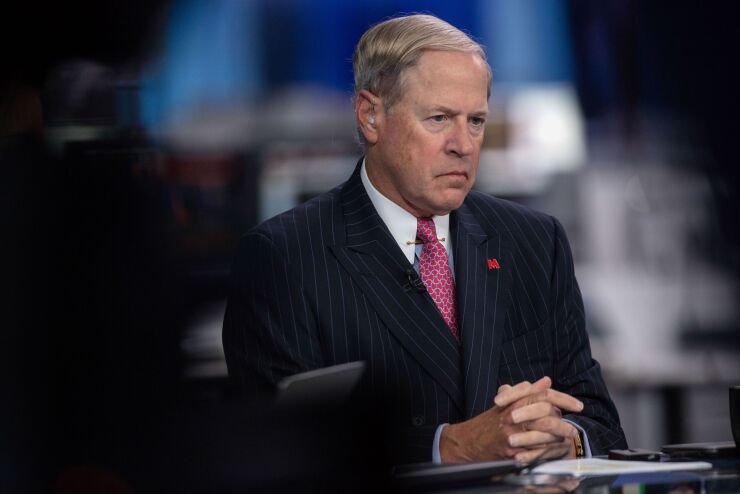Two days after an
Hill's resignation, effective Aug. 8, came just hours after the faction led by Chairman Harry Madonna appointed investor Benjamin Duster to the vacant role. The board is evaluating candidates for an interim CEO, Harris Wildstein, a Republic First director who chairs the board’s nominating and governance committee, said Friday in a press release.
Hill’s impending departure marks the end of a months-long battle for control of the Philadelphia-based Republic First that deadlocked its board, spawned a bevy of lawsuits and saw the company briefly placed under the direction of a court-appointed custodian.
A decision Wednesday by a three-judge panel on the U.S. Court of Appeals for the Third Circuit in Philadelphia reversed a district court judge’s decision to appoint the custodian, returning power to Republic First’s board.

Hill joined the board of the $5.7 billion-asset Republic First as chairman in 2016 and became CEO in February 2021 when he
“I made this decision reluctantly, as the actions of this faction of the board show they are serving their own narrow interests instead of those of shareholders,” Hill said in an emailed statement.
When Hill came to Republic First, “Harry Madonna heralded my arrival, saying my record of innovation, customer service, brand building and shareholder value creation would result in Republic becoming a major regional commercial and retail bank with a unique brand," Hill wrote.
The Madonna faction, as well as two separate activist investor groups, said Hill failed to deliver on that promise and have been advocating his ouster for months. In May, the death of director Theodore Flocco — a Hill supporter — broke a 4-4 deadlock on Republic First’s eight-member board. Days later, the Madonna faction voted to remove Hill from his chairman role, replacing him with Madonna. They were prevented from going further when Hill filed suit in federal district court.
Judge Paul Diamond ruled that despite Flocco’s death resulting in a 4-3 majority for the Madonna faction, the board needed to reach the regular quorum of five directors to dismiss Hill. Diamond declared Republic First’s board hopelessly deadlocked and
It was that ruling that a three-judge panel
“We are pleased that the Third Circuit recognizes the role of the current board in overseeing the affairs of Republic First, and that four directors acting together can fill the vacant board seat. That is what we did last night,” Wildstein said in the release.
Hill and his allies, directors Barry Spevak and Brian Tierney, said in their statement that they were not given an opportunity “to meet with or even speak to” Duster prior to his appointment and that the Madonna faction “abandoned all norms of good corporate governance and the Company's own past practice of vetting proposed candidates for the board."
For his part, Duster said in the press release Friday that he “looks forward to working collaboratively with the incumbent directors to position the bank for long-term success.”
Hill gained fame in banking circles after founding Commerce Bancorp in 1973 and managing the Cherry Hill, New Jersey-based company until he resigned in 2007. Under Hill's leadership Commerce grew into a $44 billion-asset regional powerhouse by adopting retail techniques such as nighttime and weekend hours, coin-counting machines and a wide-ranging network of branches.
In large part, Hill sought to replicate that strategy at Republic First. The company increased its branch count from 12 in 2011 to 33 today. It’s grown assets at a 17% compound annual growth rate since Hill became chairman in 2016, but critics — including the activist investors challenging Hill’s leadership — said profitability hasn’t kept pace. Republic First’s return on assets totaled 0.44% for the first quarter of 2022 and 0.51% for all of 2021. Industrywide returns on assets were 1% for the quarter that ended March 31 and 1.21% for 2021, according to Federal Deposit Insurance Corp. statistics.






